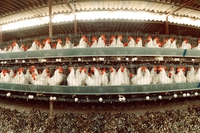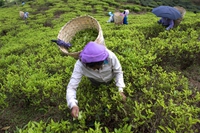
Adani, Australia’s largest coal mine has been approved, threatening Great Barrier Reef
Indian coal giant Adani’s Carmichael project, worth 16.5 billion Australian dollars, in the Galilee basin in Queensland is projected to be the largest mine in Australia and one of the largest in the world. After an international campaign to block it, Gautam Adani, the Indian billionaire founder of the conglomerate of the same name, announced








